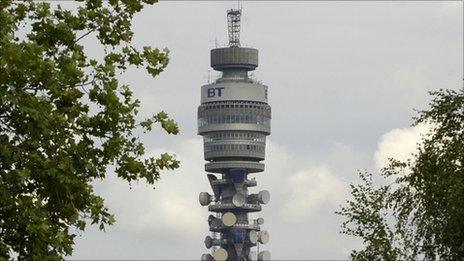London's BT Tower: Landmark to be turned into a hotel after £275m sale
- Published
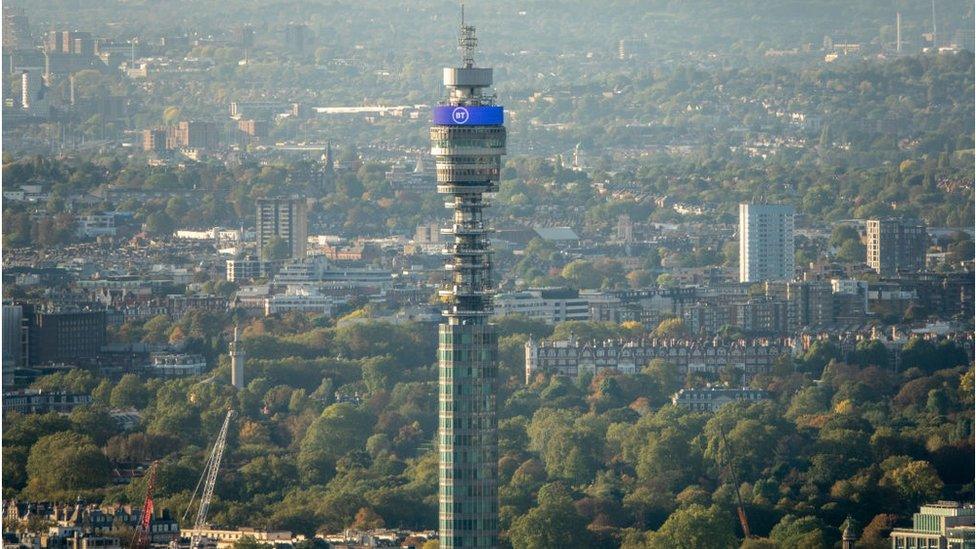
The tower was sold by BT Group for £275m
The BT Tower, a well-known landmark in London, is set to be turned into a hotel after it was sold for £275m.
Opened in 1965 by then Prime Minister Harold Wilson, the 177-metre (600ft) tower was used by television broadcasters for sending signals.
It was London's tallest building for 16 years until the NatWest Tower in the City of London was built.
The tower's former owners, BT Group, announced on Wednesday it had sold it to MCR Hotels.
The announcement has been welcomed by the architectural heritage campaign group C20, which says it hopes to see the revolving restaurant reinstated.
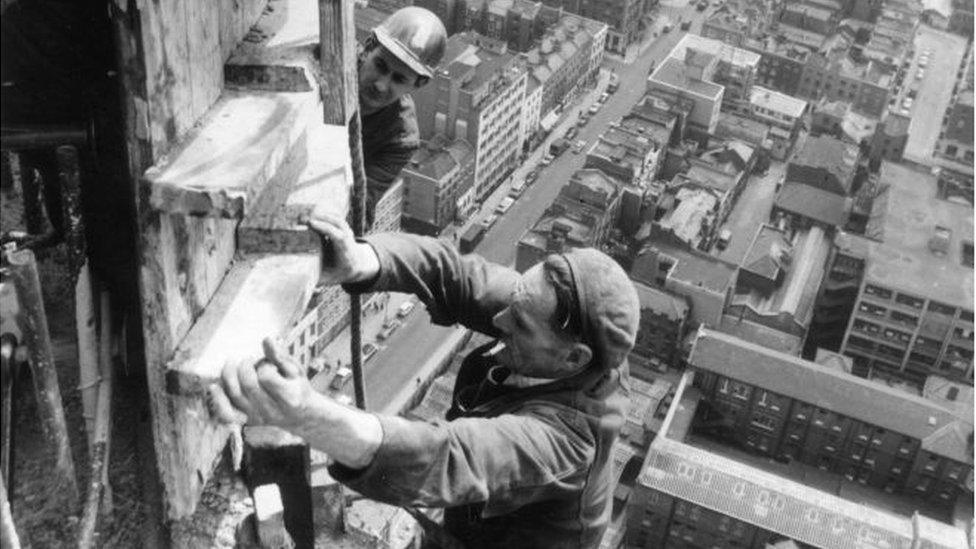
Steeplejacks constructed the central London tower
BT's property director Brent Mathews said the tower had played a vital role in carrying the nation's calls, messages and TV signals.
"This deal with MCR will enable BT Tower to take on a new purpose, preserving this iconic building for decades to come," he said.
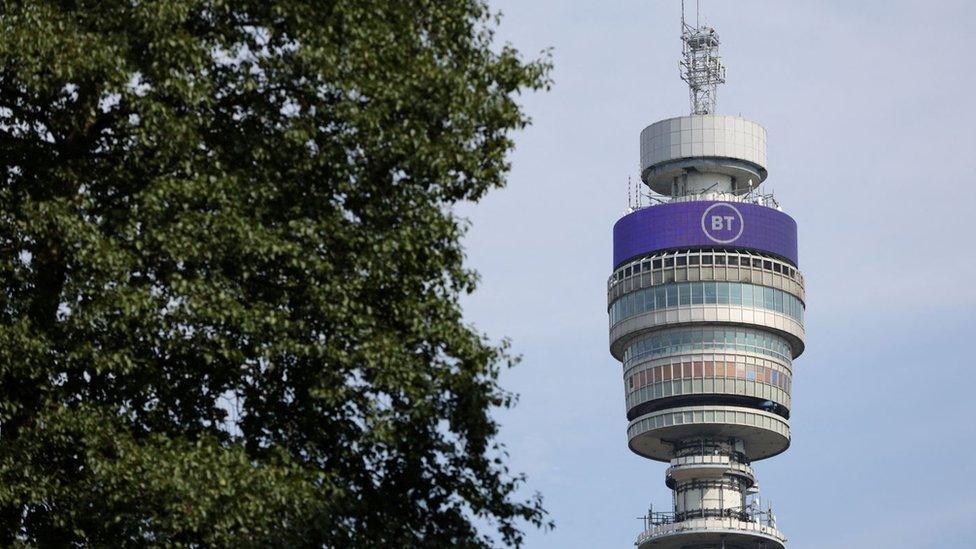
The well-known tower was opened by then Prime Minister Harold Wilson
Originally called the Post Office Tower, its role in communications diminished as fixed and mobile technology changed, and its microwave aerials were removed more than a decade ago as they were no longer needed to connect London to the rest of the country.
Explosion
Early on, the public were able to visit its revolving restaurant, which was on the top floor and run by Billy Butlin, of Butlin's holiday camps.
It took 22 minutes to fully rotate and was popular due to its expansive views stretching across central London.
The viewing platform was closed to the public after a bomb exploded there in 1971.
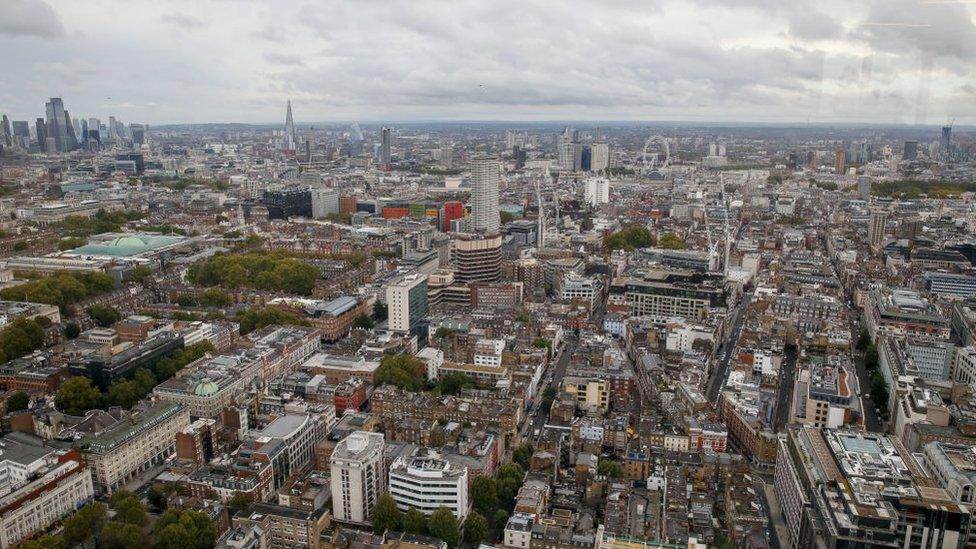
The expansive view from the tower includes landmarks such as The Shard and the London Eye
At the time, a senior detective said the blast, which was on the 33rd floor, had "all the hallmarks of the IRA".
Following the attack, the viewing platform was closed and security in the building was stepped up.
In 2003, it was awarded Grade II listed status, but it also made it to the number two spot in a survey of London's ugliest buildings that same year.
It was pipped to the number one spot by the Barbican arts centre, another Grade II listed building.
The landmark has featured in a range of films, books and television series, including the BBC's Doctor Who, The Bourne Ultimatum film and Alan Moore's graphic novel V for Vendetta.
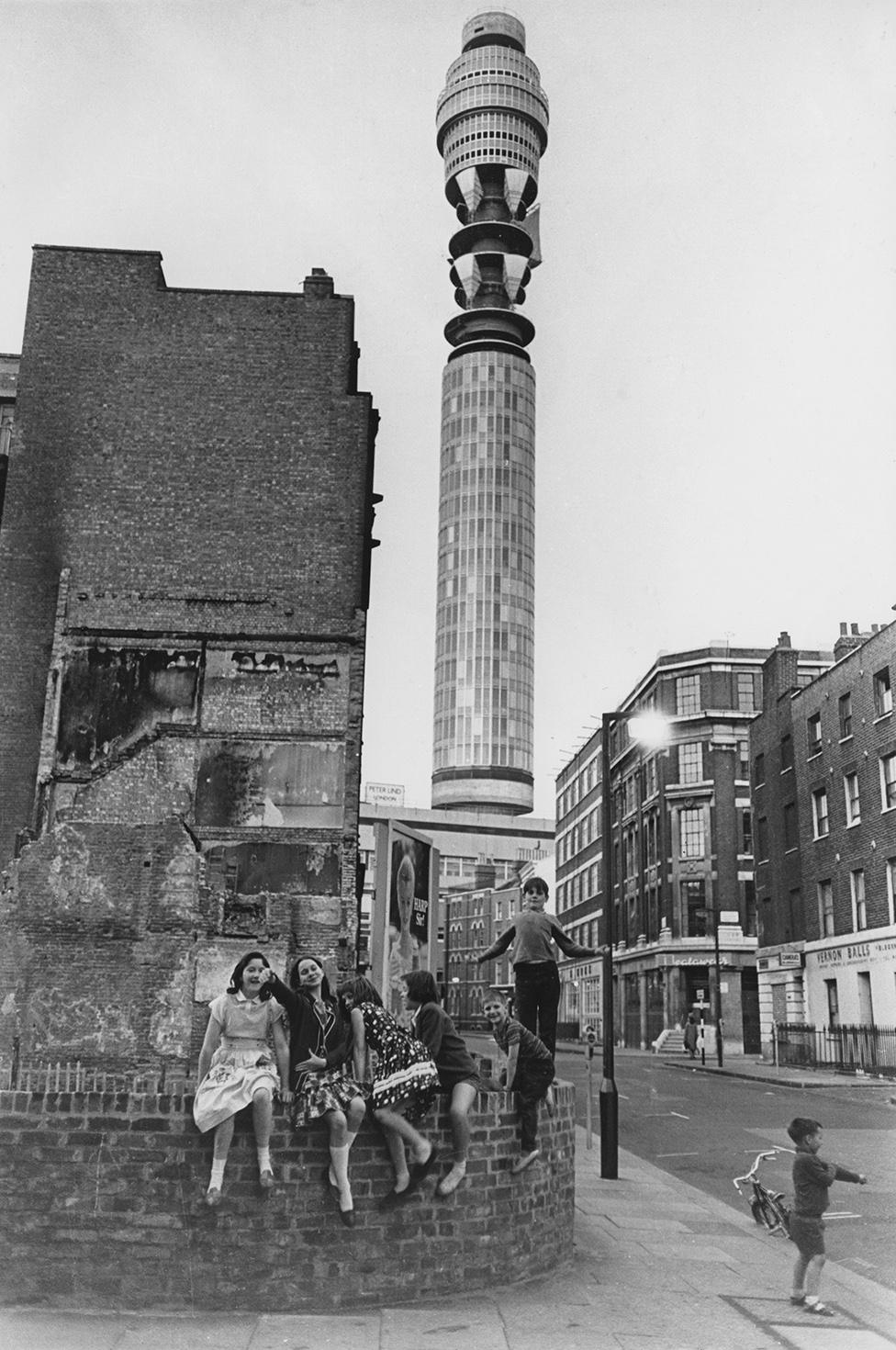
Children were photographed playing in front of it when it opened
Tyler Morse, CEO and owner of MCR Hotels, said: "We are proud to preserve this beloved building and will work to develop proposals to tell its story as an iconic hotel, opening its doors for generations to enjoy."
Catherine Croft, director of C20 Society, which campaigns to save "outstanding buildings and design", said the announcement was "good news".
"It's a fabulous building," she said. "A real 60s icon."
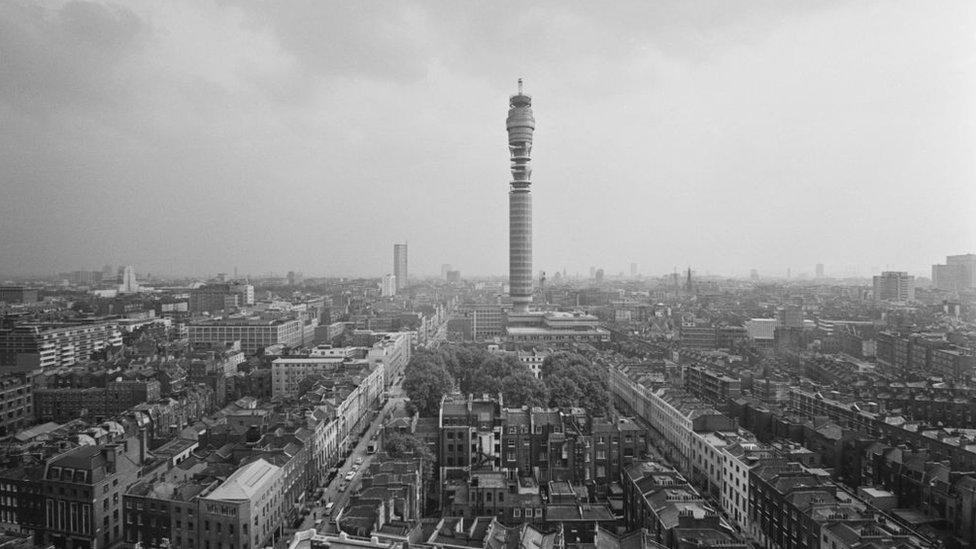
It was originally called the Post Office Tower
Ms Croft said she was trusting MCR Hotels to reinstate the revolving restaurant on the top floor.
"It would be crazy not to take that opportunity," she said. "It's wonderful seeing the whole of London pass in front of you."
She added that the "challenging project" would result in a "really niche hotel".
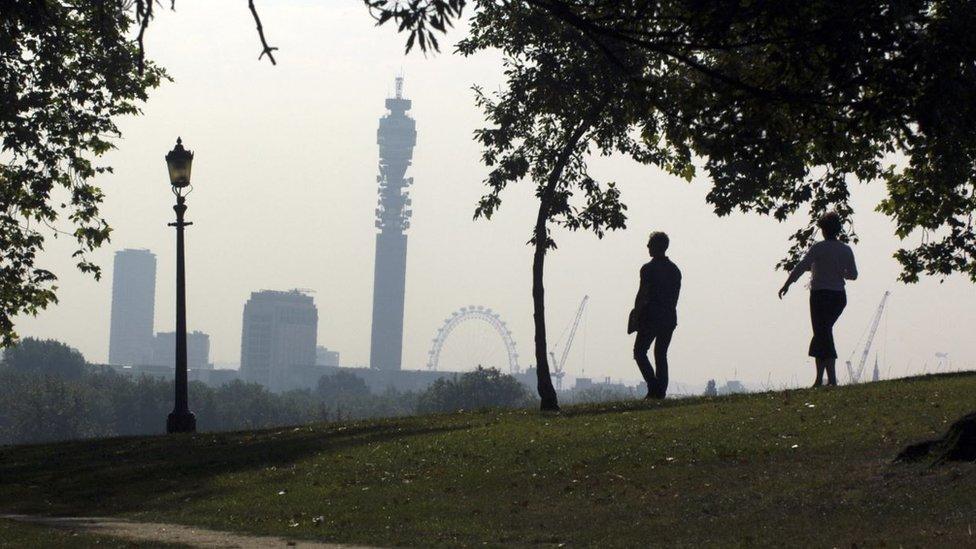
BT's property director said the tower played a vital role in carrying the nation's calls, messages and TV signals
'End of an era'
Ben Wood, a technology analyst at CCS insight, said: "BT's decision to sell the BT Tower will be considered the end of an era by many in the communications industry for whom the landmark is synonymous with the evolution of telecommunications history."
He said the building itself was likely "highly impractical" and required "a significant amount of upkeep".
"The public has not been able to access the BT Tower for years so there will be plenty of people who will jump at the opportunity to stay in such an iconic building.
"It's exciting that such a fantastic landmark is being repurposed for leisure use."
The building was open to some visitors during the London-wide Open House Festival in September last year.

Listen to the best of BBC Radio London on Sounds and follow BBC London on Facebook, external, X, external and Instagram, external. Send your story ideas to hello.bbclondon@bbc.co.uk, external
- Published30 August 2011
